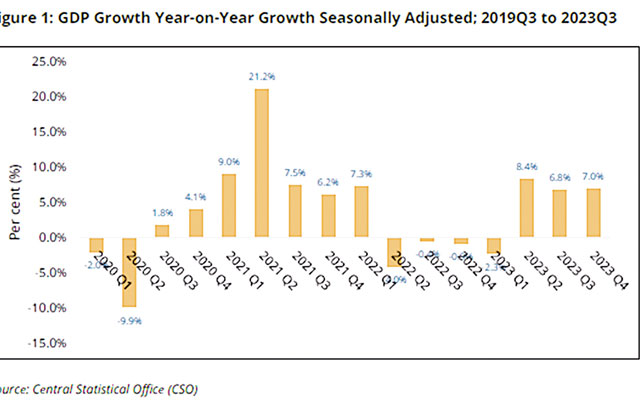By Majaha Nkonyane | 2019-01-16

The Eswatini Economic Policy Analysis and Research Centre (ESEPARC) is hosting a public lecture on the small and medium enterprises (SME) sector and its role in industrialisation.
The lecture, to be presented by Wits Business School Director and Professor of Finance, Dr Paul Alagidede, will provide insights on new perspectives on SMEs and industrialisation in Eswatini, as well as options for transforming the SME sector and a new approach to industries of the fifth world based on balance in all spheres of economics.
ESEPARC has partnered with the ministry of commerce, industry and trade’s SME Unit to host the lecture, which is also receiving support from the United Nations Development Programme (UNDP) in Eswatini. Also to be presented at the lecture are perspectives - anchored on research conducted by ESEPARC - on entrepreneurship and opportunities available for SMEs in Eswatini. The event, which is also open to SME practitioners and the public, will be held at Happy Valley Hotel tomorrow, starting at 9am.
ESEPARC Executive Director Dr Thula Sizwe Dlamini noted that the SME sector is a significant contributor to economic growth and development, as well as employment. He said SMEs had a crucial role to play in the national economy and, therefore, anchor on the roles of government, the business community, and public at large to harness and optimise the sector’s development.
Lecture
Dr Dlamini said the lecture was in line with ESEPARC’s mandate to build capacity within the economy, as well as the centre’s drive to encourage domestic production and leveraging science, technology and innovation to develop and grow the SME sector, and by extension, the country’s economy.
Adding, ESEPARC Research Economist Mangaliso Mohammed stated that reigniting growth in Eswatini was about expanding the economic base – which is essentially the people who are actively engaged in economic activities by ensuring that Emaswati produce goods and services that can be flooded into the market.
He noted that Eswatini has a youthful population, so it is important to engage them in the economy as they are the future, particularly in the SME sector. Also, he emphasised that the private sector needs to play a huge role in turning the economy around instead of looking towards government for business.
“Currently, we are happy to be middlemen; we go into retail and import goods we have not produced yet the money (or value creation) is in the production of these goods. We need a new stock of entrepreneurs to produce goods and services in Eswatini; we need to support local value chains that focus on goods made in Eswatini, so that we can increase the number of times our currency circulates within our economy before it leaves to other countries,” he said, adding that the lecture will provide more insights into such issues and more.
Synopsis
Giving a synopsis of his lecture, Professor Alagidede noted that although SMEs continue to dominate economic activity, they have not been sufficiently liberated to make a meaningful contribution to job creation and closing the wide income and standard of living gaps.
“Eswatini, like many African countries is naturally endowed with rich arable land, a good climate, and a very sophisticated and diverse culture. Yet, like many economies on the continent, the rich endowments have failed to live up to the standard required of true Ubuntu, with significant inequalities in the midst of plenty, fettered growth, and fundamental distortions above and below and below and above,” he said.
Economy
Adding, the professor said the National Development Strategy (NDS) and Sustainable Development Goals (SDGs) 8 and 9 seek to lift Eswatini’s economy from its current state of lower middle income to a new trajectory of wealth and health.
He noted that the lecture will take the NDS and SDGs 8 and 9 as sign posts, to present new perspectives on SMEs and industrialisation in Eswatini.
“While the United Nations’ goals appear laudable on paper, a different strategy is required to transform them from mere proclamations to actual manifestations. We argue for a return to the land (and all its facets such as value creation) as a starting point for any serious transformative SME sector as well as a new approach to industries of the fifth world based on balance in all spheres of economics, that is, production, distribution, exchange, and consumption,” he said.
share story
Post Your Comments Below
ATHLETICS - A true marathon indeed!
The High court has issued an order to Athletics Eswatini...
Over 2 000 interned paramedics are said to be unemployed 10 years after completing their training...
On Saturday One Billion Rising Eswatini held a mountain circle hike in partnership with the Proje...

Eswatini's economic activity, measured by Gross Domestic Product (GDP), grew at a steady pace of ...
All material © Swazi Observer. Material may not be published or reproduced in any form without prior written permission.
Design by Real Image Internet